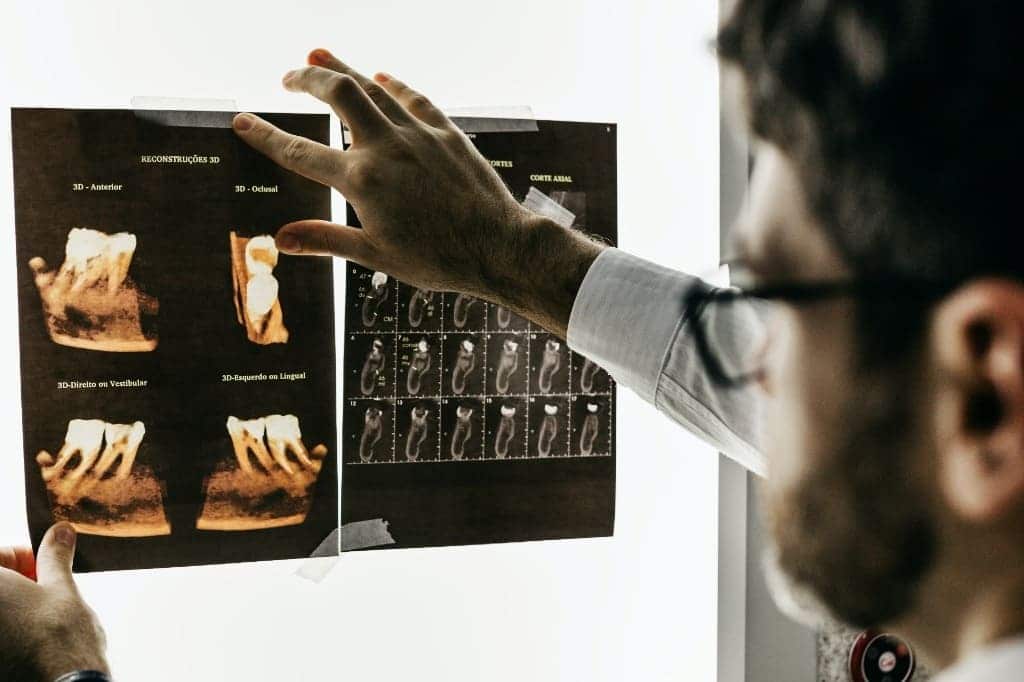The goal of dentistry is to keep the teeth in the mouth, but unfortunately there are cases in which this is not possible and tooth loss occurs and that is when you need dental implants.
The loss of teeth produces aesthetic problems, affects the chewing and digestive function and even alters phonetics.
To rehabilitate tooth loss there are techniques such as partial dentures o full dentures, fixed prostheses (dental crowns , fixed bridges) and prostheses on dental implants (implant crowns, bridges, overdentures).
When properly installed, osseointegrated dental implants are the best substitute for a dental root, becoming the ideal solution to recover lost teeth.
Rehabilitation through dental implants considerably increases the quality of life of patients when compared to conventional rehabilitations based on removable prostheses. [1]
At the Asiri Dental Center we can help you if you want to get dental implants in Quito.
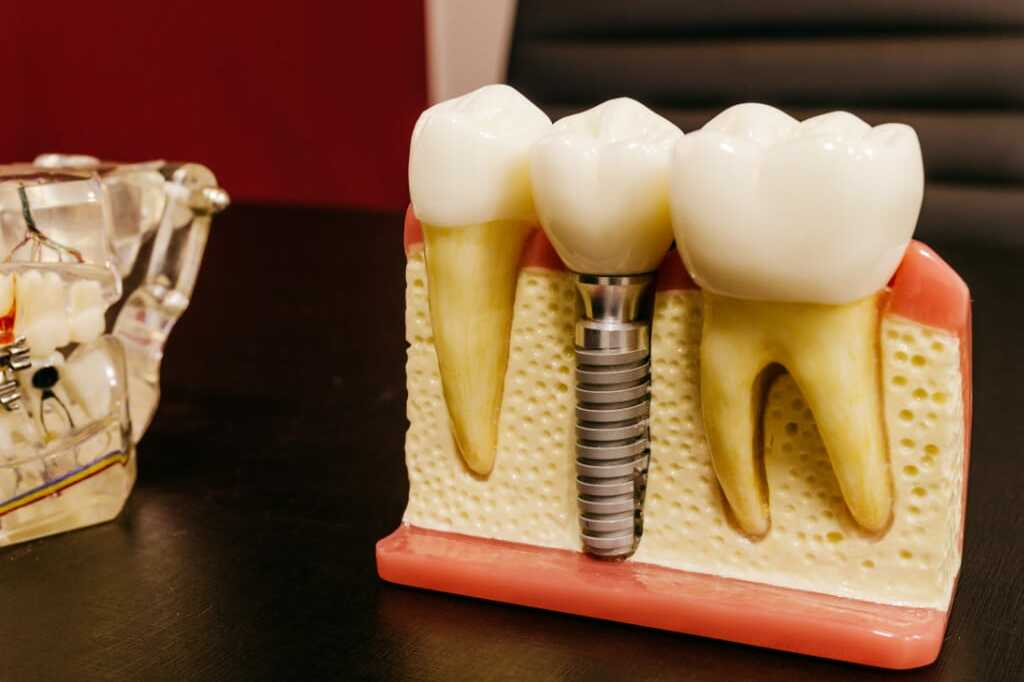
Table of Content
What is a Dental Implant?
A dental implant is a small piece of in most cases made of a biocompatible or bio-inert material called Titanium.
They are very similar to a bolt or screw , but their head has the possibility of screwing attachments (attachments) to connect dentures or dental crowns.
The implant goes in the place where previously there was a root of a tooth that has been lost and acts as it.
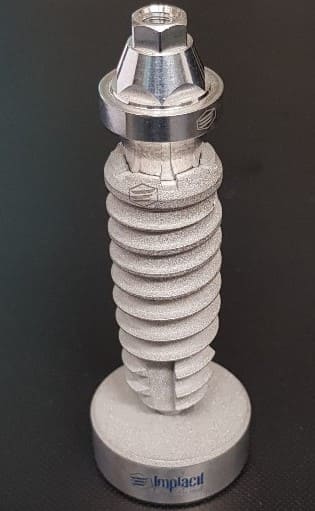
Key Takeaways
- A dental implant is the best way to replace missing teeth because it is the closest thing to a natural tooth
- Dental implants can be used to support individual crowns or prostheses of several teeth.
- The installation of dental implants has two phases separated in time: one for the placement of the implant itself and another for the installation of the crown or prosthesis.
Installation of Dental Implants
During an outpatient maxillofacial surgery that can be done under local anesthesia or conscious sedation, the implant is screwed into the maxilla or mandible in the place where the root of a tooth used to be.
As soon as installed, the process of osseointegration or healing of the implant begins where it is molecularly attached to the bone.
A gingival sealing process is then induced, which is the formation of the gum around the neck of the implant to protect it just like a natural root.
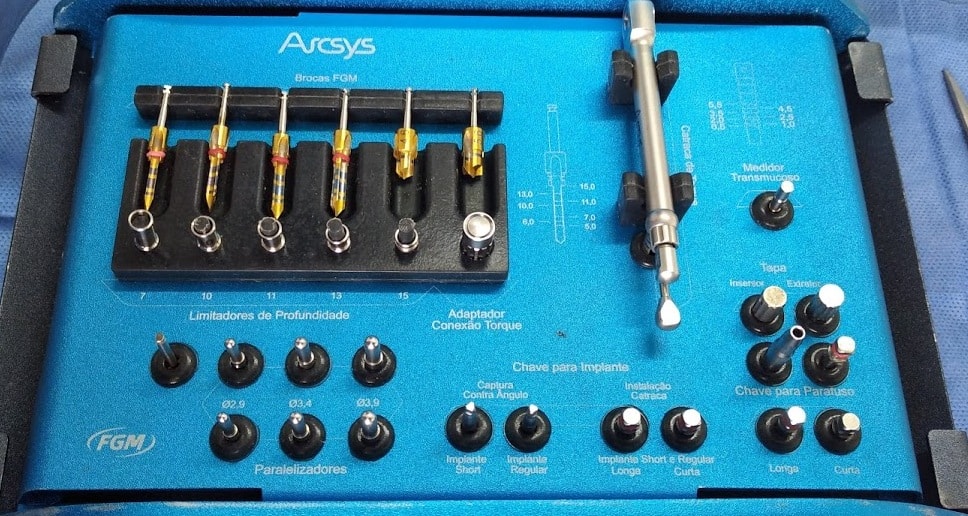
What are Dental Implants for?
Due to its similarity to a dental root in terms of shape and its fixation to the bone, a dental implant is the best substitute that exists for a root.
Once the implant is integrated into the bone and the gingival seal occurs, the implant is ready to house attachments or attachments that in turn serve as support for crowns or dental prostheses.
This is how implants are used to recover teeth , serving as reliable support for crown, bridge or overdenture structures.
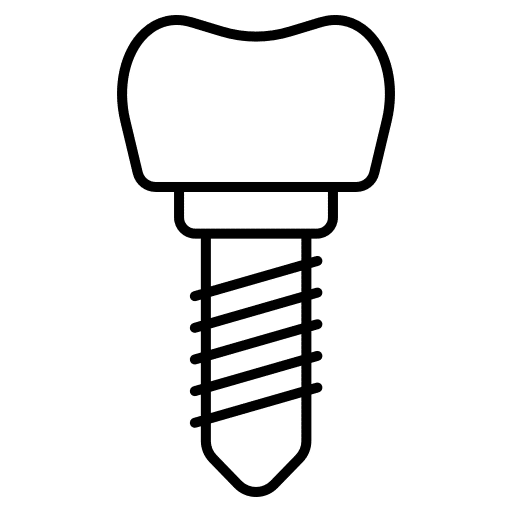
What are the Abutments for?
Every type of element or structure that is connected to a dental implant is an abutment or prosthetic component.
There is a great variety and each manufacturer develops increasingly advanced systems and solutions under their research and development criteria. & nbsp;
Its main types and functions are:
| Tipo | Función |
| Scarring | Recondition gums to naturally protect the implant |
| Mesostructures | Attach securely to implants to hold dentures |
| Transfers | Taking molds for making the prosthesis |
Previously, the attachments were not used and the prostheses went directly to the implant. & nbsp; & nbsp;
This practice is no longer indicated because in the long term there is bacterial contamination and loss of the bone adjacent to the implant and its consequent failure.
You must be very vigilant because in order to reduce costs, there are still places where they do not use abutments, mainly mesostructures, and this puts the success of the implant at risk .
Prosthetics That can be Placed Over Implants
Rehabilitation techniques on implants are very extensive, however here I summarize them in a very general way for a better understanding
Single implants: in this case, an implant corresponds to a single tooth, that is, a single crown is placed on each implant
Partial rehabilitation: is used when there are several missing teeth and there may be two or more implants supporting two or more teeth. Its design depends on the particular characteristics of each case.
Overdentures: is a total prosthesis that is placed on implants 2 to 4 implants whose attachments protrude from the gum and act as a “clasp” that allows the prosthesis is removed by the patient.
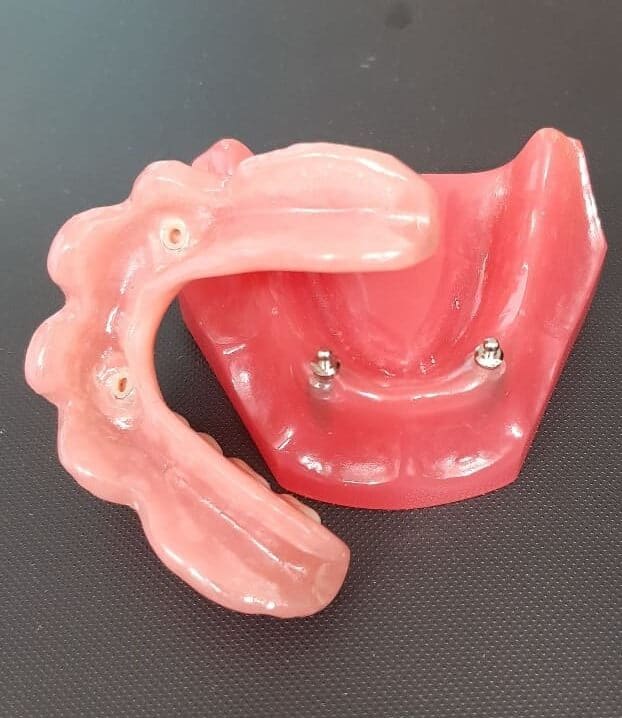
Total implant-supported prostheses: very similar to overdentures, with the difference that they are supported by 4 to 6 implants [2] whose attachments allow the prosthesis to be screwed in and remain fixed, that is, the patient cannot remove it.
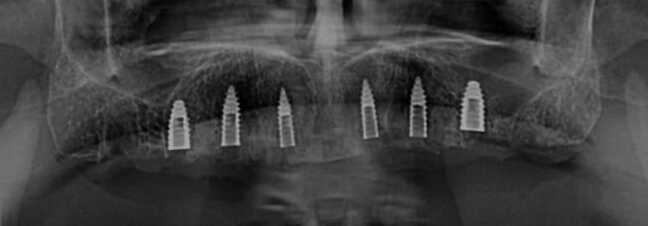
Main Brands of Dental Implants
There are many brands of dental implants that are marketed in Ecuador, among them we can name the following:
Procedures Related to Dental Implants
8.1.- Tissue Grafts or Regenerations
8.1.1.- Bone Tissue (Bone)
When teeth are lost, one is susceptible to losing bone in the area where the lost tooth was before. & nbsp; & nbsp;
If there is not enough bone, the implant may not have enough tissue to integrate
Losing bone, the shape of the edge of the maxilla or mandible is also lost, which undermines the aesthetics of the final result. & nbsp; & nbsp;
This is why in some cases, it is necessary to complement the implant treatment with tissues that allow bone formation.
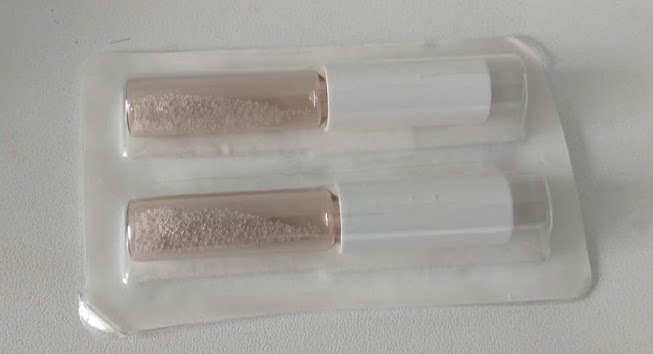
8.1.2.- Membranes
8.1.3.- Platelet Rich Fibrin (PRF)
8.2.- Maxillary Sinus Elevation
Prices of Dental Implants in Ecuador
There are many factors that determine the cost of implants, as a patient you should consider:
- The formal education of the fourth level and experience of the implant and rehabilitation surgeon
- Quality / brand of the implant and attachments to be used
- Use of a current, modern and safe technique
- That the treatment is adjusted to your case
- If an additional procedure such as tissue regeneration or sinus lift is necessary.
For this reason, the ideal is to go to the Asiri Dental Center with your Implantologist in Quito, where we will evaluate you guided by our values of honesty, responsibility and empathy.
Only then will you be confident of having a fair treatment and price to recover your teeth.
Who are Candidates for a Dental Implant?
Anyone who has one or more missing teeth may be a candidate for a dental implant. However, it is important that the patient has good general oral health and enough jaw bone to support the implant.
It is also important that the patient have realistic expectations about the outcome of the procedure and be willing to follow postoperative care instructions to ensure a successful recovery.
How to Take Care of Dental Implants
If you already have dental implants, it is very important that you take care of them as much or more than your natural teeth.
If you are a smoker, this represents a great risk for the success of your implants, the ideal is to quit smoking or smoke a maximum of less than 10 cigarettes a day. [3]
One of the main cares is daily hygiene using waterpik-type irrigating devices.
Dental Implants Procedure
In general, you need to go through the following steps
Planning Stage:
- Consultation and initial evaluation with your trusted implantologist at asiriodonto in Quito
- Taking dental tomography
- Design of the most appropriate treatment plan for your case
- Consent
Surgical Stage
- Pre-surgical appointment
- Laboratory exams
- Surgery
- Postoperative recovery
- Suture removal
- Implant discovery surgery and scar placement
Prosthetic Stage
- Fitting of abutments
- Taking Impressions or molds
- Design and manufacture of prosthesis or crown
- Testing and adjustment
Control stage
- Periodic checks in dental office.
Frequently Asked Questions (FAQ’s) About Dental Implants
Do dental implants fall out?
The dental implant technique is generally a safe technique, performed correctly and with correct maintenance, it provides dental implants with a very long useful life. This does not exempt an implant from failing, however this is a very low percentage of cases.u003cbru003eHere the experience of the specialist, the quality of the materials and the respect for the indications by the patient are very important.
Can the implants be seen?
No, the implants are under the gum and only the attachments protrude above it and are visible, but the crown or prosthesis hides them.
Do you have to wait for the implant to integrate into the bone?
Ideally, wait 4 to 6 months for the osseointegration process to be considerable and offer a stable and safe implant, however, there are currently immediate or early loading techniques that promise satisfactory results.
Should I have a CT scan?
Yes, a tomography is essential at the beginning of all treatment based on dental implants. Only with it you can determine the current state of the patient and plan the implants to be installed.
What is the useful life of an implant?
Well maintained and with proper hygiene and control by your trusted dentist, a dental implant can last a lifetime. However in the middle of speaking of lifespan between 15 and 25 years.u003cbru003eu003cbru003eAt this point and if you want to correctly install and maintain your implants, it is still very important that you choose a serious clinic with high quality standards such as the u003cstrongu003eAsiri Dental Center in Quito.u003c/strongu003e
Is it possible that my mouth will reject the implant?
The implant is made of titanium, which is a bio-inert material so your mouth should not reject it.u003cbru003eWhat can happen is the appearance of complications and infections but they have nothing to do with rejection of the implant material
How is the process after surgery?
Right after the implant placement surgery, the aim is to treat the inflammation and pain characteristic of all dental surgery, this is achieved with cold compresses and medication.u003cbru003eYou should also take care of the stitches by following a soft diet. Anyway, your Doctor will give you precise indications for your case.
Is control and maintenance of my implants required?
Definitely yes, a semi-annual periodic control is required to maintain and evaluate the status of your implants and take the corrections that are necessary for their optimal function and long useful life.
How should I care for my implants?
In addition to your regular check-ups, it is very important to maintain excellent oral hygiene to avoid infections.
Conclusions
Dental implants are the best option to rehabilitate lost teeth, but like all dental treatment, it must be executed with meticulous planning that considers all clinical factors, materials and appropriate techniques to ensure its success.
You should beware of offers that give treatment prices without first evaluating what you really need: they usually do it to attract you with a price that in the end is not such or if it is … most likely they are not using quality materials or current techniques, so your treatment may fail in the medium or long term.
References
| 1. | McGrath, C. Implants provide better health-related quality of life than conventional treatment for edentulous patients. Evid Based Dent 3, 73–74 (2002). https://doi.org/10.1038/sj.ebd.6400115 |
| 2. | Richards, D. ReGuenin, C., Martín-Cabezas, R. How many implants are necessary to stabilise an implant-supported maxillary overdenture?. Evid Based Dent 21, 28–29 (2020). disponible en https://doi.org/10.1038/s41432-020-0077-7 |
| 3. | Devlin, A., Fee, P. How do different levels of smoking affect dental implants?. Evid Based Dent 22, 28–29 (2021). https://doi.org/10.1038/s41432-021-0155-5 |
Author:
Our Foundress and guardian of our Values
Dr. Krisna makes sure that the treatment you receive is successful by contrasting opinions between all the doctors that are necessary and ensuring a neat execution of all the processes.
More about Dr. Krisna Casal


